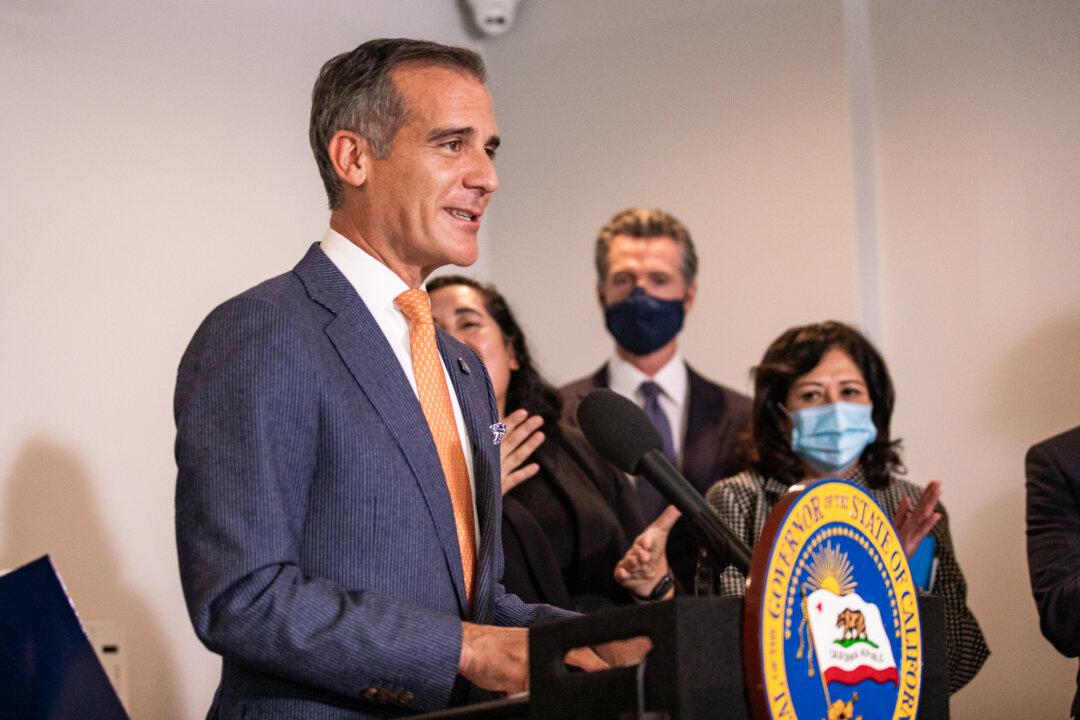LOS ANGELES—In his final State of the City address at the soon-to-be-completed Sixth Street Bridge in Downtown Los Angeles, LA Mayor Eric Garcetti highlighted some of the programs and investments for the upcoming fiscal year—with a special focus on public safety, climate change, and housing shortage, plus a $1 billion investment into addressing homelessness.
“My goal is to hand over a city budget next week that is stronger than ever, an infrastructure program unequaled in America, and a pathway to house our people and save our planet with the urgency that this moment demands,” said Garcetti, who terms out at the end of this year with a pending confirmation for his nomination as the U.S. ambassador to India by President Joe Biden.





